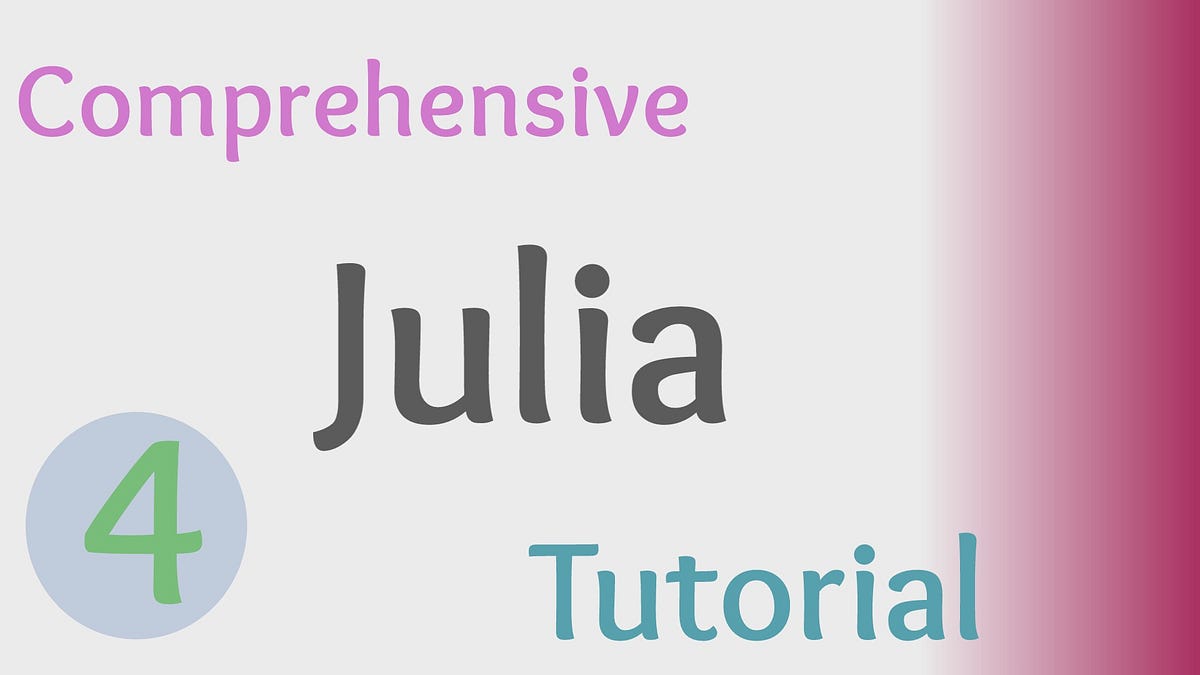Introduction
Over the past few tutorials, we have gone over some relatively basic programming concepts such as types, loops, and functions. All of these basic skills are finally out of the way — which means that you can get to actually practicing and learning the fun stuff! While you might certainly need some practice to get there, and it will be a lot of work and a commitment to learning for the rest of your life if you intend to take it seriously, you are well on your way to being a great Julian developer!While previously we weren’t going over anything that is specific to the Julia language, today is the day that will change. This would be an ideal spot for someone who has programmed before — but not in Julia to pick up, actually. This means that pretty soon we will be working with real packages and solving real problems, which is going to make these tutorials a lot more useful and fun!
Do (Not) Panic
Of course, it is going to be difficult to become a programmer just by watching a few videos. Fortunately, we will be re-using and repeatedly reviewing all of the skills that we have learned in these videos. It might seem like certain things are easy to gloss over if you aren’t paying enough attention at a moment — but don’t worry, you will get it!
Syntactical Expressions
Syntactical expressions are a fantastic tool in Julia that makes writing new functions to perform arithmetic incredibly scientific and easy to do. Often we can use these expressions to condense code that might otherwise take up ten to twenty lines into just one or two. In most languages, you would approach writing a function to calculate the mean like this:
function mean(x)
return(sum(x) / length(x))
end
#data-science #statistics #programming #tutorial #julia
